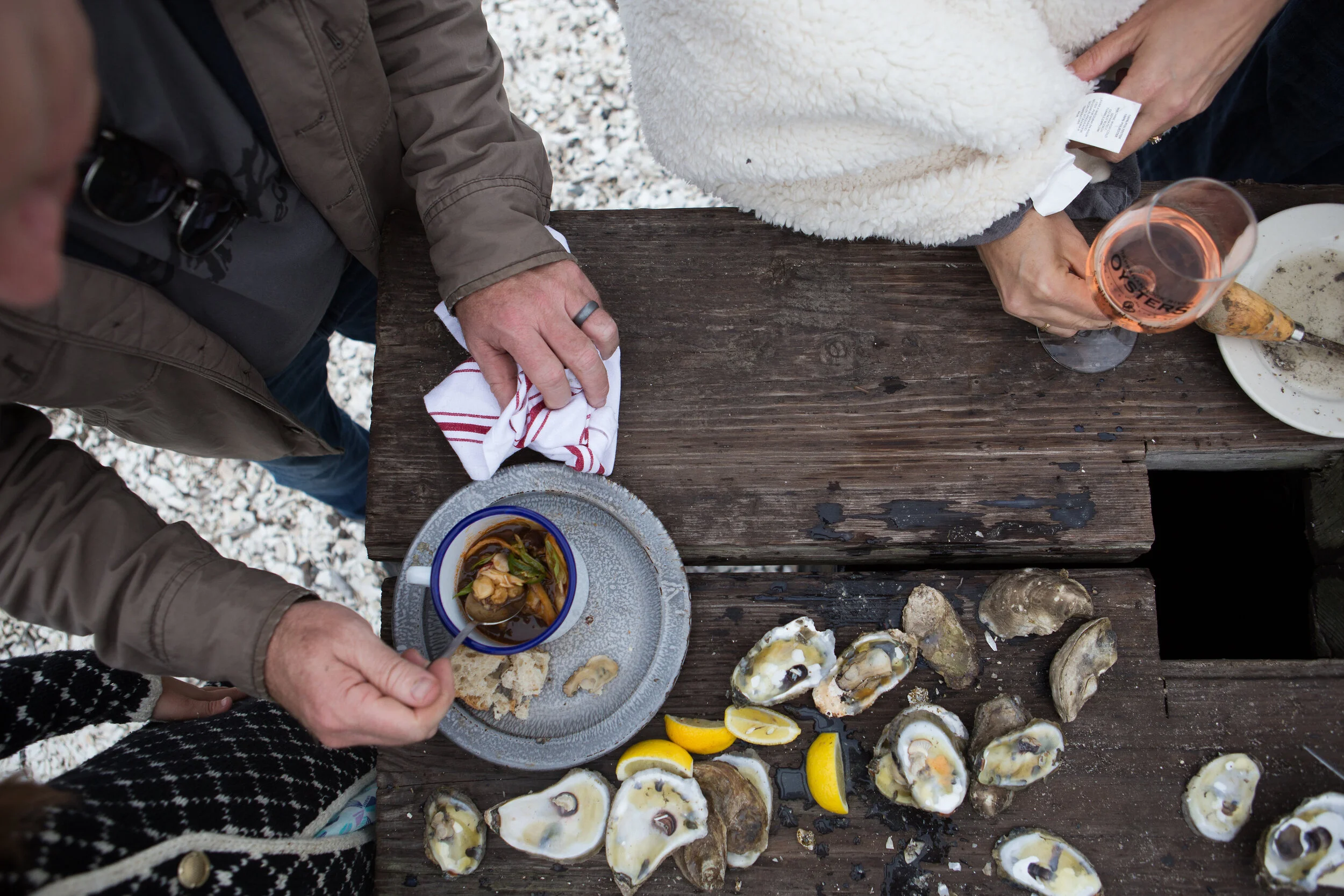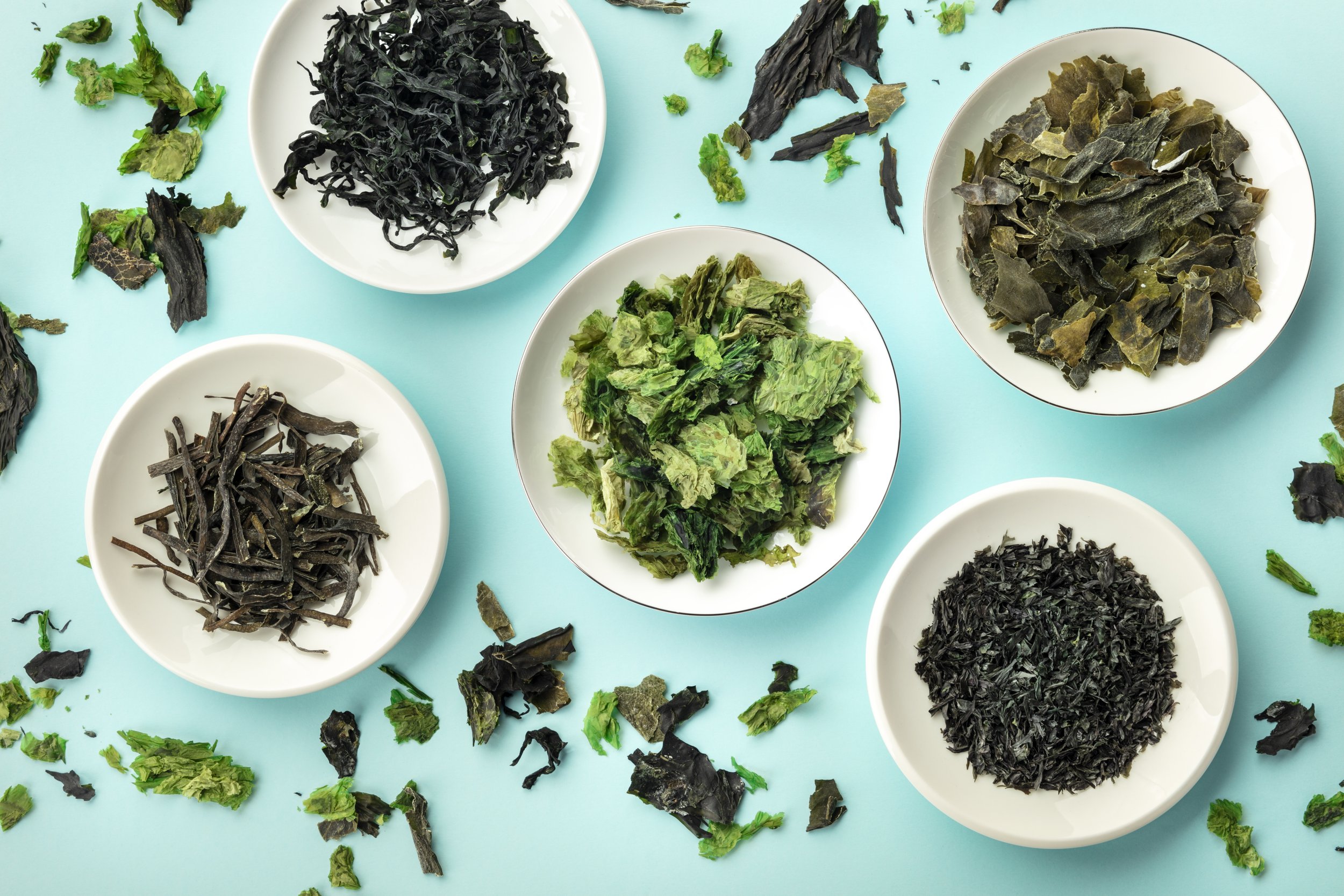Can I Kelp You? Four Trends Rising in the Natural Food Products Sector
/The Natural Products Expo East in Philly was full of attendees and innovative ideas
By Susan Able | Edible DC
The largest food and wellness trade show in the U.S., Natural Products Expo East, focused on everything from natural and organic foods to supplements and home products wrapped up last week in Philadelphia. As interest in this product segment has exploded in this past decade, this year’s conference size at the Philadelphia Convention Center mirrored that interest with more than 1,200 exhibitors and over 18,000 attendees.
The senior team at DC’s Little Sesame went to check out the hummus and organic food segment and had the chance to explore offerings from vendors whose all share the same dream: to land their products on retail shelves. And grocery buyers from all the big players (Whole Foods, Wegmans, Krogers, etc.) who could make that happen were there in force as well, carefully checking out products that could be the next big thing.
I spoke with Maddy Beckwith, Little Sesame’s communications and community engagement lead. “It was a great show, and some really great new food products and ideas. But it’s a big show, and as I sampled my way through the vendor exhibits (how much kombucha can one drink?), I saw some clear product trends and interest. I have a strong feeling you’ll see more of these categories in stores in the near future.”
Here’s her list:
More Alternative (plant-based) *Dairy: ex: and Milkadamia
The juggernaught growth of the dairy alternatives market has happened for a variety of reasons. Lactose intolerance, milk allergies or a choice to reduce impact on the planet by cutting out cow-milk dairy are the top three. If you thought the alternative dairy product market was already saturated with soy, almond, oat and hemp milk, you’d be wrong. Natural Products Expo East was brimming with new alternative dairy products.
From elevated oat milks that also come as pre-mixed, barista lattes, such as the UK’s Minor Figures, or milk made from Australian macadamias, Milkadamia, or vegan dips and sour cream from PlantPerks, the plant-based dairy alternative market is still a hot one.
Non-Alcoholic cocktails and elevated mixers
A growth market spurred by Covid quarantine? U.S. drinking spiked during the first year of the pandemic and a separate and aligned interest has grown by consumers looking to cut out or cut back on alchohol in their life, without giving up the allure of a full-flavor mixology experience. Enter products like Three Spirit, where their carefully crafted drinks have it all except alcohol—vegan, gluten-free, made with functional and adaptogenic plants. (According the the NIH, adaptogenic plants can help the human body respond to stress, anxiety, fatigue and promote overall wellbeing.) And not surprisingly, the founders of Three Spirit are mixologists and plant scientists. Designed to drink on the rocks, or be used as a mixer, the drinks come in 16.9 ounce bottles (a little smaller than a wine bottle) and are $39.99.
Avec fell into the category of elevated mixers. The founders, NYC native and Black female entrepreneur Dee Charlemagne and UK native Alex Doman say, “Over the years, we started to pay more attention to what we were drinking. That’s when we noticed that the “mixers” we were pairing with our booze suck! Sodas and juices full of sugar and nasties. Tasteless, uninspiring vodka-sodas.” Enter Avec’s premium carbonated mixers made with real juice, herbal botanicals and low sugar. A 15 pack of cans in mixed flavors (like grapefruit and pomelo or yuzu and lime) is $45 or you can chose your own party pack here.
Seaweed, kelp and sea beans in many formats
Lots of seaweed was seen at the trade show, from seaweed snacks like gimMe to an entire range of products from Atlantic Sea Farms like Sea-Veggie burgers, kelp cubes for smoothies and ferments like Sea Chi, a fresh Maine seaweed crafted into a mild kimchi. Atlantic Sea Farms was founded in 2009 and was the first commercially viable seaweed farm in the US, created with a mission to grow a domestic seaweed market as over 98% of edible seaweed is now imported from Asia. And in a time of climate change, farming kelp is also a way to help Maine lobstermen and fishermen find new ways to develop income. As Atlantic Sea Farms CEO Briana Warner says, “We need to show the world that truly sustainable food doesn’t come from a lab, it comes from the clean cold waters of Maine and is grown by fishermen.” Curious? You can order kelp products on their website.
Regeneratively-Farmed Ingredients
So what are we talking about here? Agriculture done in a way that actually improves the soil health. According to the Regeneration Institute, “Regenerative agriculture describes farming and grazing practices that, among other benefits, reverse climate change by rebuilding soil organic matter and restoring degraded soil biodiversity – resulting in both carbon drawdown and improving the water cycle.”
There were dozens of products at the show that promoted using regeneratively sourced ingredients. From local Baltimore brand Simpli which is building a regeneratively sourced supply chain for their quinoa products, to Wild Orchard Tea, regeneratively grown without chemicals or any contaminants on Jeju Island, to Smootch, a sports drink made from regeneratively grown oats —“regeneration” was everywhere at Natural Products Expo East.
Beckwith pointed out that Little Sesame is riding the wave of interest in creating products that improve the earth through sourcing ingredients that have been grown through planet-friendly agriculture. The company’s line of hummus is made from 100% regeneratively Montana-grown garbanzo beans, a top priority for Little Sesame founders Nick Wiseman and Ronen Tenne.








